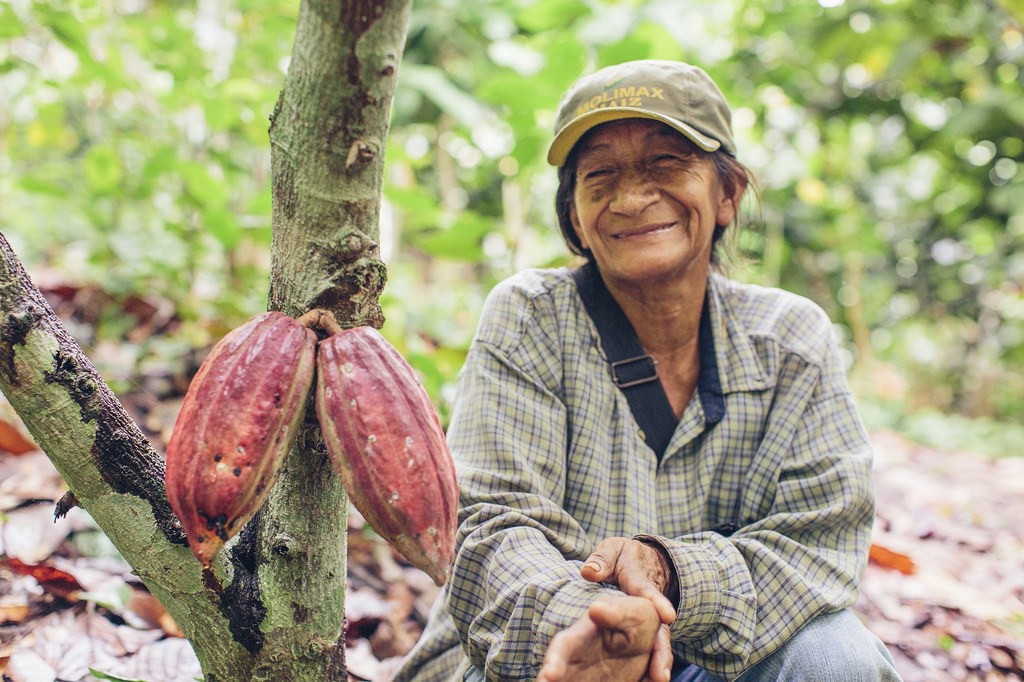Most of the world’s poor depend on farming to make a living, mostly in Africa, Latin America, and South Asia. A 2014 study by Bain estimated that 2.5 billion people living on less than $4 per day rely on smallholder farming to survive.
To improve permanently the livelihoods of these 2.5 billion poor dependent on smallholder agriculture, we must change the way we think about solving the problem.
First, we should cease thinking about improving smallholder farmers’ productivity and incomes by 10, 20, or even 80 percent. Rather, we should consider how smallholder farmers with a real potential to succeed and thrive in farming could increase their incomes four- to five-fold at a minimum.
This means paying individual smallholder farmers more at the farm gate, reducing the number of middlemen taking a share of the profits, and continuing to increase consumer awareness of and demand for direct-trade sourcing of agricultural products, which not only provides transparency but also ensures that benefits from the global supply chain go to the farmers.
Next, we must come up with viable alternative livelihoods for the 60 to 80 percent of smallholder farmers working land on which generations have struggled and failed to make viable livings by farming alone. This means fostering the burgeoning middle class in these regions by increasing education levels and manufacturing and service employment options.
It also means accepting that some crops and world regions benefit from replacing smallholder farming with commercial-scale agriculture. This consolidation, however, must be done in a way that avoids rent seeking and ensures traditional landholders equitable opportunities to benefit from the shift to larger farms.
Finally, we need more investment not less. But the investment must be smart: Just throwing out big gobs of money won’t solve the problem. We must continue to explore blended approaches combining philanthropy for smart subsidy and guarantees with disciplined but patient investor capital to serve all stages of need among smallholders and supporting businesses.
I have a proposal. In Swahili, amkeni means to wake up. I believe that the impact investing community interested in supporting smallholder farmers must wake up to new opportunities and new approaches.
I have isolated four opportunity areas for impact investors across the agriculture value chain that I believe will help change the status quo for impoverished smallholder farmers for the better:
1. Invest in emerging inclusive outgrower schemes. These businesses organize networks of smallholder farmers growing high export value niche crops (specialty coffee, fine cacao, asparagus, truffles, etc.) and connect them with international buyers, making margin off the trade. Examples of these emerging types of businesses are Kokoa Kamili, Cacao de Colombia and Vega working in Tanzania, Colombia and Nicaragua respectively.
Providing blended finance (debt + guarantees or debt + grants) in the smaller ticket sizes needed by organizations at earlier stages but that most investors are unwilling to provide due to risk concerns. This would help those businesses to grow, increase exports, and reward high-potential smallholder farmers with significantly increased incomes.
2. Invest in development of eco-friendly commercial farms in traditionally unproductive regions, as Pacific AgriCapital is doing in Colombia or as Agros is doing in Central America with landless rural poor. This project finance investment approach would go to private developers of certified sustainable commercial farms growing value-added crops (fruits, vegetables, palm, etc.), focusing on regions traditionally dominated by smallholder farming and with conditions (land rights) in place to support investment.
Providing longer-term project finance to these types of opportunities would not only help create jobs and increase productivity and incomes, it would do so sustainably.
3. Invest in specialized input and extension service providers that have come up with innovative and market driven solutions to provide these services to smallholder farmers such as TechnoServe has done consistently across the globe and is now attempting to do in South Sudan. In addition, selectively investing in innovative tech-driven extension and smallholder financial services providers leveraging alternative data sources (such as soil quality and climate) such as FarmDrive or Esoko in Kenya would also contribute to this goal.
By providing pay-for-performance investments to NGOs or venture debt/equity to seed stage innovators would solve the problem of how to provide non-grant funded agronomic technical assistance and inputs to smallholders that would allow them to boost their productivity at lower cost.
4. Invest to grow direct-trade importer businesses like Atlas Coffee Importers or Uncommon Cacao in the United States. These private processors, roasters and retailers purchase commodities such as coffee, cocoa, tea, quinoa, etc., directly from growers, cutting out middlemen and ensuring premium prices reach growers. They also use profits to invest in quality-improving TA programs for growers, like Runa does for suppliers in Ecuador.
Investing in companies committed to benefiting smallholder producers will help build vibrant consumer demand and will thus ensure producers earn the prices their efforts deserves.
None of these opportunities for investment will be possible for impact fund managers if they and the sources of capital for those funds do not consider non-traditional approaches to making investments. This could include; revenue sharing arrangements to allow for earlier stage aligned investments; blending philanthropy into deals to provide guarantees or needed additional services such as technical assistance and pooling transaction resources to lower the burden of investment on both investors and investees.
Impact investors who ‘wake up’ to these opportunities and approaches could truly change the status quo for smallholder farmers.











